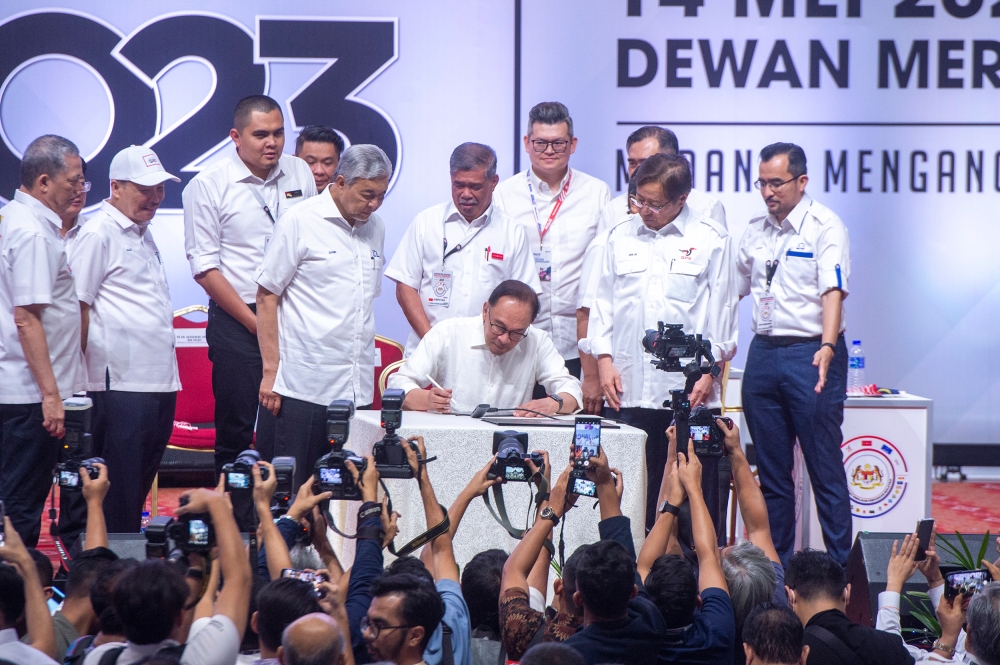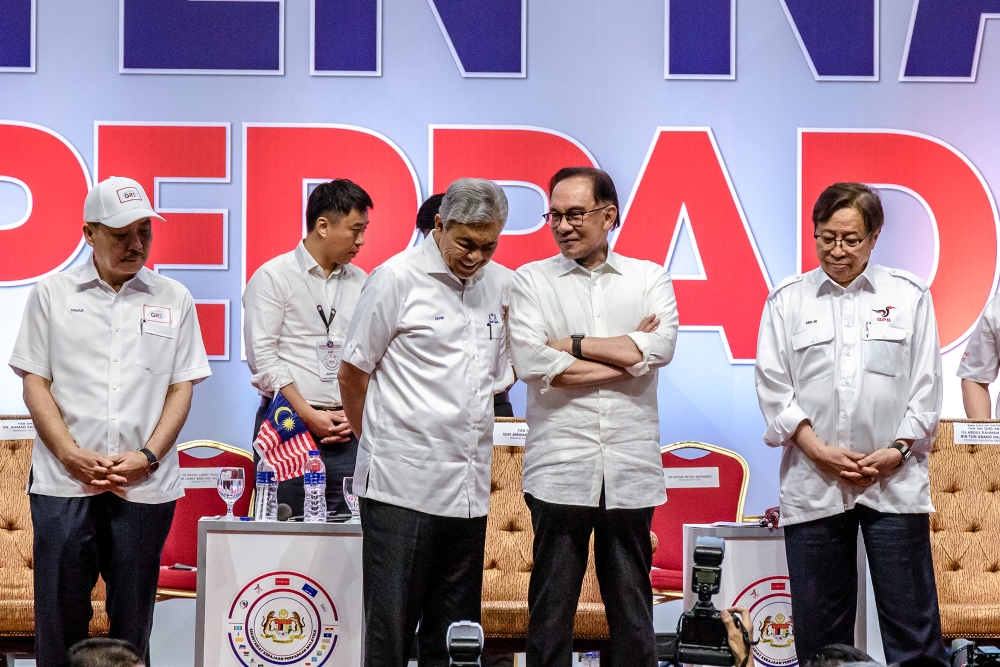KUALA LUMPUR, May 16 — The successful conclusion of the inaugural Unity Government National Convention will give Prime Minister Datuk Seri Anwar Ibrahim’s coalition a strong foundation from which to fend off Perikatan Nasional’s challenge in state elections due soon.
Analysts told Malay Mail the event with over 5,000 delegates from 19 parties in the federal government has set the right tone for the political alliance heading into polls for Selangor, Penang, Negeri Sembilan, Kelantan, Terengganu and Kedah expected in July.
Universiti Malaya Centre for Democracy and Elections (UMcedel) sociopolitical analyst Associate Professor Awang Azman Awang Pawi said the event clearly showed better compatibility and camaraderie among the parties than found in PN.
He said this was especially obvious following reports that PAS went behind the back of coalition partner Parti Pribumi Bersatu Malaysia (Bersatu) to sign on with former prime minister Tun Dr Mahathir Mohamad’s “Malay Proclamation” resolution earlier this month.
“In terms of internal stability, the unity government is now ahead of Perikatan as reflected in media reports with PAS going to meet Mahathir without Bersatu’s knowledge and Gerakan leaders condemning Hadi for his ‘non-Muslim’ remarks.
“Likewise, after Bersatu leaders faced court cases, which could affect the image of PAS and PN,” Awang Azman said.
He also suggested that PAS has increasingly stood apart from Bersatu after the latter’s funds were seized by the Malaysian Anti-Corruption Commission for its case against party president Tan Sri Muhyiddin Yassin.

Despite his reading, however, Awang Azman said the unity government still has plenty of work to do, especially for parties that were rivals-turned-allies, to convince their supporters about the unlikely alliances ahead of the elections.
He said the notion of a “greater good” must be passed down from the party leaderships to the grassroots, and strategies subsequently developed to convince Malaysians in general.
“So, there needs to be a continuous joint programme carried out at the grassroots level, which is the right approach to attract the grassroots’ attention and get their cooperation with their former rivals. Their top leaders should come and celebrate it together,” he added.
Assistant Professor of Political Science at International Islamic University Malaysia (IIUM) Syaza Shukri said the convention will have made the unity government’s job in appealing to voters easier, by demonstrating that the parties could work well together for the benefit of Malaysians.
“PN in opposition would find it more difficult to find points of agreement except their rhetoric against the government.
“But I think regardless of the issues with PN now, at the end of the day, I think the component parties will end up working together anyway. The PN wave is stronger than the individual parties,” she told Malay Mail.
Still, Syaza said the affability party leaders have shown for each other was much stronger than lower down the ranks, especially in Pakatan Harapan.
After decades of rivalry, she said that it will be harder to persuade these supporters than it was to convince party leaders, saying ordinary members were driven purely by ideology and less accepting of realpolitik.
“They truly believe in the cause of their parties. They truly believe that the other side is ‘the enemy’. It is not easy to convince them otherwise.
“To the top leadership, they can easily push these differences aside because they gain something out of it — material or position wise. The grassroots leaders do not benefit much.
“Because the differences are really ideological, there needs to be an active and consistent effort by the leadership to explain the points of agreement. That’s the only way. Make them see the greater good,” she said.

Singapore Institute of International Affairs senior fellow Oh Ei Sun dismissed the fellowship shown at the convention, however, saying it would offer little resistance to the communal politics that PN will deploy for the state elections.
He said this would be an existential threat to Anwar’s unity government, the bonds of which would also be tested in the state elections.
“It would appear so, but ultimately it’s the tremendous religious appeal of PAS that will matter most in the upcoming state elections and beyond, for an increasingly more religiously conservative is on an almost irresistible rise in this country,” he said.
To counter, Oh said the parties in the unity government should focus purely on defending the status quo rather than being ambitious.
“I frankly think they should only work together on the lowest common denominator, namely not pulling each other’s legs in the upcoming state elections, as opposed to working full throttle in churning out votes for one another, as this might actually hurt their electoral prospects as their original supporters would be displeased,” he added.
On Sunday, the first Unity Government National Convention was held and attended by 19 parties and four coalitions: PH, BN, Gabungan Parti Sarawak and Gabungan Rakyat Sabah.
The event saw former political rivals cosying with each other and speaking on the stage of Dewan Merdeka at Umno headquarters in World Trade Centre here.






















